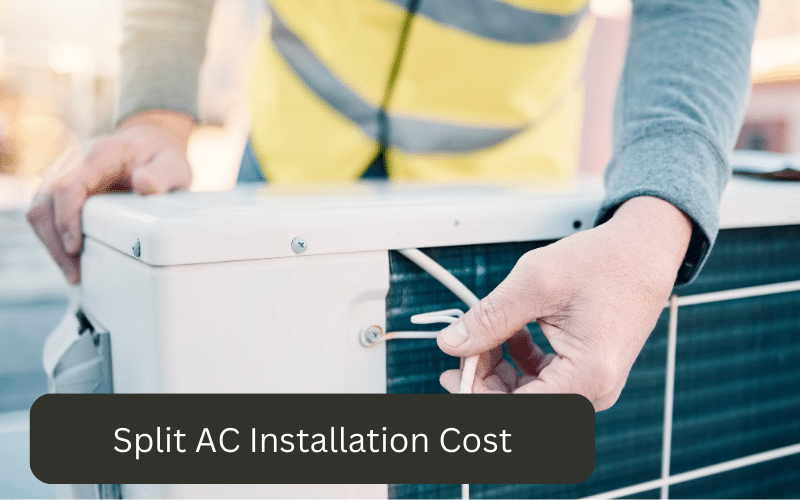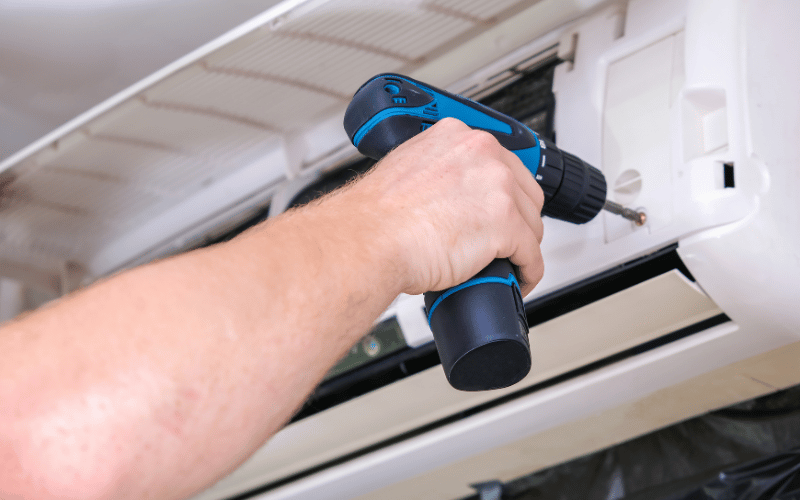Energy HVAC Services is a local, family-owned AC contracting company that offers reliable AC and heating solutions to homes and businesses in LA’s San Fernando Valley. With our commitment to honesty, trust, and customer satisfaction, we have earned the trust of countless satisfied customers. In this blog post, we’ll explore the factors that affect split AC installation cost and provide you with valuable tips for installing a quality unit at an affordable price.
As the temperature in Los Angeles continues to rise, more and more homeowners are looking to install split AC systems to keep themselves cool and comfortable. Split AC units are a popular choice among homeowners due to their high efficiency, energy-saving capabilities, and quiet operation. If you’re looking to install a split AC system in your home, it’s important to understand the factors that affect the installation cost and how you can reduce it. Fortunately, Energy HVAC Services is here to guide you through the process.
What is a Split AC System?
Before we dive into the installation cost details, let’s clarify what a split AC system is and what makes it different from other types of AC units. Simply put, a split AC system is composed of two main units: an outdoor compressor and an indoor unit. The outdoor compressor houses the refrigerant, which cools the air, while the indoor unit blows the cooled air into your room. Split AC systems offer several advantages, including high energy efficiency, quiet operation, and zoning capabilities, which allow you to adjust the temperature in each room separately.
Factors Affecting Split AC Installation Cost
Several factors come into play when calculating the cost of installing a split AC system. Here are some key considerations:
- Size of the Unit: Larger units that have the ability to cool more space will generally be more expensive to install.
- Brand: Different brands price their units differently. Premium brands tend to be more expensive, but they may also offer better warranties or have a reputation for longer-lasting products.
- Installation Complexity: If the installation process requires additional work such as electrical updates or ductwork modifications, the cost can increase.
- Number of Indoor Units: If you plan to cool multiple rooms and need more than one indoor unit, this will increase the overall cost.
- Energy Efficiency: AC units with higher energy efficiency may be more expensive upfront, but can save you money on your energy bills in the long run.
- Local Regulations: Depending on the area, there may be regulations or permits required for installation, which can add to the cost.
- HVAC Contractor’s Rates: Different contractors have different rates for their services, so it’s important to get multiple quotes.
The Benefits of Investing in a Quality Split AC Installation
Despite the upfront cost of installing a quality split AC system, the benefits far outweigh the cost in the long run. A quality unit can provide you with years of comfortable, energy-efficient cooling, which can lead to substantial savings on your energy bills. Additionally, split AC units are known for their quiet operation, which can significantly improve your home’s indoor air quality and reduce noise pollution.

Moreover, investing in a quality installation can also provide you with peace of mind. A poorly installed unit can lead to leaks, system failures, and costly repairs. By choosing a reputable contractor like Energy HVAC Services, you can ensure that your split AC system is installed correctly and will function flawlessly for years to come.
Tips for Reducing Split AC Installation Costs
While the installation cost of a split AC system might seem daunting, there are several strategies you can employ to keep costs to a minimum:
- Shop around: Don’t settle on the first quote you get. Compare prices from different HVAC contractors to ensure you’re getting the best deal.
- Consider the energy efficiency: Opt for a unit with higher energy efficiency. While the upfront cost might be higher, the long-term savings on your energy bills can offset the initial investment.
- Choose the right size: Make sure you’re installing a unit that is the right size for your space. A unit that is too big or too small can lead to inefficiency and higher energy costs.
- Look for rebates and incentives: Some utility companies or governments offer rebates or incentives for installing energy-efficient units. Be sure to research these options.
- Avoid unnecessary extras: While it can be tempting to opt for extra features or upgrades, stick to what you need. Extras can quickly add up and increase the overall cost.
Conclusion
Installing a split AC system in your home can be a worthwhile investment, but it’s important to understand all the factors that affect the installation cost and how to reduce it. By choosing a reputable contractor like Energy HVAC Services, you can ensure that your unit is installed correctly and that you’re getting the most out of your investment.
From selecting the right brand and unit to following cost-saving tips, you can enjoy a comfortable and affordable summer with a quality split AC system. Get in touch with Energy HVAC Services today to learn more about the cost of split AC installation and how they can help you stay cool this summer!
More Articles:
- Concealed Air Conditioner Installation: The Perfect Blend of Comfort and Aesthetics
- Mastering Cooling Duct Installation: A Comprehensive Guide
- Why Choosing the Best Duct Installation Company Matters
Frequently Asked Questions
What are the advantages of using a split AC system over other types?
Split AC systems offer flexible placement options since they don't require ductwork, making them ideal for rooms where duct installation is challenging.
Can split AC units provide both heating and cooling functions?
Yes, many split AC units are reverse-cycle, enabling them to provide both heating and cooling functions. These systems can adjust to different seasons, offering a comfortable indoor temperature throughout the year.
What impact do blocked or obstructed vents have on HVAC efficiency?
Blocked or obstructed vents restrict airflow, causing the HVAC system to work harder, reducing its efficiency and increasing energy consumption. This can lead to uneven heating or cooling, potential system overheating, and a shortened lifespan for the equipment.





